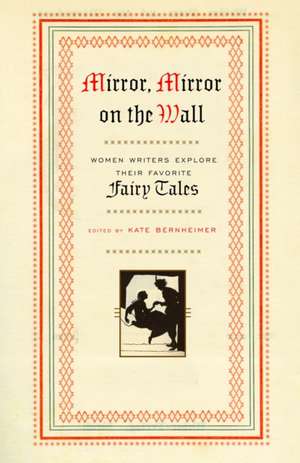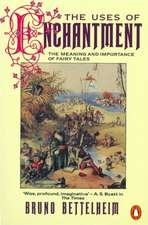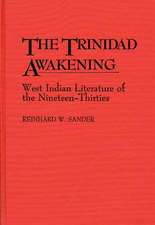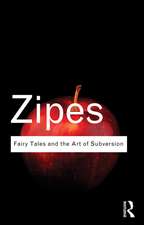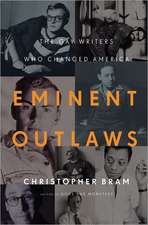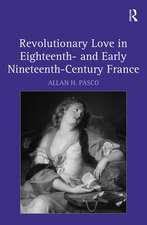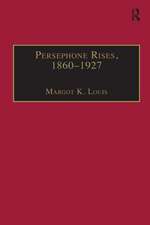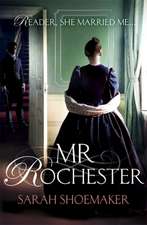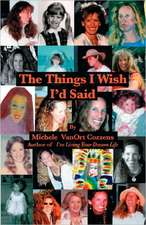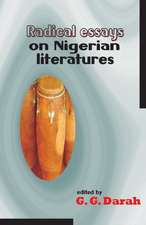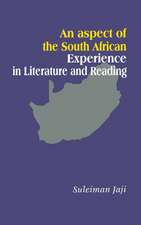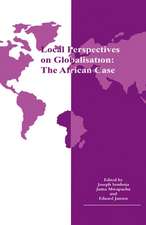Mirror, Mirror on the Wall: Women Writers Explore Their Favorite Fairy Tales
Editat de Kate Bernheimeren Limba Engleză Paperback – 28 feb 1998
Fairy tales are one of the most enduring forms of literature, their plots retold and characters reimagined for centuries. In this elegant and thought-provoking collection of original essays, Kate Bernheimer brings together twenty-eight leading women writers to discuss how these stories helped shape their imaginations, their craft, and our culture. In poetic narratives, personal histories, and penetrating commentary, the assembled authors bare their soul and challenge received wisdom. Eclectic and wide-ranging, Mirror, Mirror on the Wall is essential reading for anyone who has ever been bewitched by the strange and fanciful realm of fairy tales.
Contributors include: Alice Adams, Julia Alvarez, Margaret Atwood, Ann Beattie, Rosellen Brown, A. S. Byatt, Kathryn Davis, Chitra Banerjee Divakaruni, Deborah Eisenberg, Maria Flook, Patricia Foster, Vivian Gornick, Lucy Grealy, bell hooks, Fanny Howe, Fern Kupfer, Ursula K. Le Guin, Carole Maso, Jane Miller, Lydia Millet, Joyce Carol Oates, Connie Porter, Francine Prose, Linda Gray Sexton, Midori Snyder, Fay Weldon, Joy Williams, Terri Windling.
Preț: 109.54 lei
Nou
Puncte Express: 164
Preț estimativ în valută:
20.96€ • 21.80$ • 17.31£
20.96€ • 21.80$ • 17.31£
Carte disponibilă
Livrare economică 25 martie-08 aprilie
Preluare comenzi: 021 569.72.76
Specificații
ISBN-13: 9780385486811
ISBN-10: 0385486812
Pagini: 400
Dimensiuni: 133 x 202 x 22 mm
Greutate: 0.3 kg
Ediția:Anchor Books.
Editura: Anchor Books
ISBN-10: 0385486812
Pagini: 400
Dimensiuni: 133 x 202 x 22 mm
Greutate: 0.3 kg
Ediția:Anchor Books.
Editura: Anchor Books
Extras
ALICE ADAMS
The Three Bears and Little Red Riding Hood in the Coffin House
It is odd, I think: one's tendency to locate the imaginative literature that one reads in one's own known, familiar sites. (Or am I the only one who does this? Come to think of it, I've never mentioned this habit to another person.) In any case, for me, both "The Three Bears" and "Little Red Riding Hood" take place in a neighborhood shack that we all, as children, called "the coffin house." As much of D. H. Lawrence happened in a boathouse in Maine, but that was much later on, and not really a part of this story.
The coffin house, then, was a garage-like structure some distance off in the woods (I should note that I am speaking of the thirties, in the very rural countryside that surrounded the very small, at that time, town of Chapel Hill, North Carolina). Our neighborhood of pleasant faculty houses was out in this countryside. This fact of its being out in the woods of course lent validity to my situating such stories there; both Goldilocks and Little Red Riding Hood would indeed have to walk through woods to get to the coffin house.
Actually in this storage shed there were the wooden plank cases in which coffins were transported; I cannot now imagine how we children had come by this fact, and, as I think of it, I wonder if it was even true. But we called it the coffin house, and we convinced ourselves that all those tall, upright boxes were coffins, and we also believed that the various bits of trash we found around that house were the leavings of the dead: an occasional magazine, a candy wrapper ("He must have been eating this candy bar when he died!") or a half-smoked cigarette. Going to the coffin house was always a good adventure; anything at all might be there. I suppose the ultimate hope was of finding a "dead person," somehow left behind from the funeral rites.
When I thought of Goldilocks arriving at this house, I imagined that the cases had been pushed aside and indeed thinned out to make room for the table at which the Three Bears had been eating--at which Goldilocks found the porridge of the Little Bear so delicious. I believe that I added an upstairs room for the sake of the beds. However, when I came to Little Red Riding Hood, I placed the Grandmother's bed squarely out among the coffin boxes, their looming, shadowy presences as frightening as the grotesque face of the Grandmother-wolf.
Both of these stories can be viewed as cautionary: Do not go off into the woods, and especially not by yourself--and, certainly, do not go to a house where coffins are stored, where you might just possibly find a dead body.
None of us ever mentioned the coffin house to our parents, I believe for two reasons: one, that we would be forbidden to go there; and two, that we would be exposed as credulous, and told, "Of course those aren't real coffins, they're just big empty boxes." It was infinitely preferable to cling to our myth, our titillating terror.
The worst possible crime available to a child, back then, was to run away from home. This was always a thrilling possibility--no wonder we were so frequently warned against any version thereof, like walking off into the woods by yourself. I, of course, a rebellious and in many ways discontented child who longed for a change of scene--I was enthralled by the notion of running away. But I was also a fearful child, and I never got much farther than the woods with which I was deeply familiar.
I was drawn to both "Little Red Riding Hood" and "Goldilocks and the Three Bears" as fantasies of escape, and, curiously, when recently I began to think of them again, I could not remember how either of them ended--until I asked my son, who set me straight.
There are, as I now understand it, at least two accepted versions of how things turned out for Little Red Riding Hood. In one, the Grandmother reveals her true character as the predatory, carnivorous wolf who gobbles up the child. In the other, a kindly woodsman, fortuitously in the neighborhood, comes along to save the little girl. In some versions he comes before, in others after she is eaten alive; in the latter story she is removed with an ax from the stomach of the wolf--dead wolf, happily rescued little girl. In psychoanalytic terms, I take this to mean that your mother will get you in the end, probably; your father might or might not save you. In any case, it seemed too dangerous a chance for me to take.
In most versions of "The Three Bears," at the end the intruding little girl, Goldilocks, is somehow ejected from the home of the bears, sometimes thrown from an upstairs window; other stories have her peaceably leaving through the front door, with polite and friendly parting waves.
But I seem to have found or invented still a third version of my own, in which having at last come upon such a warm and congenial family, Goldilocks is adopted by that family, with the Littlest Bear for her brother (something I very much wished I had).
The coffin house, then, contained infinite possibility, either bloody death at the hands (or teeth!) of the ultimate witch--or, conversely, a brand-new warm and affectionate family.
I do not think I really believed that stuff about coffins and dead people for a minute, but I did believe in the possibility of change--and in fantasy.
JULIA ALVAREZ
An Autobiography of Scheherazade
Once upon a time, I lived in another country and in another language under a cruel dictatorship which my father was plotting to overthrow. This is not a fairy tale. This is the story of my childhood in the Dominican Republic under the dictatorship of El Jefe. But what I remember is not the cruel dictator, not the disappearances, not my parents' nervous voices behind closed doors, but the storybook that helped me get through the long, dull schooldays that were my understanding of what dictatorships made children do.
I lay on my stomach under my bed, a six-, seven-, eight-, nine-, ten-year-old girl--this went on for a long time as long times do during childhood. With the bedskirt providing a perfect cover, I felt as if I had actually been transported to a silken tent in a faraway country with nothing but my wits to keep me alive. The storybook I was reading was one that my maiden aunt Titi, the only reader I knew, had given me. The Thousand and One Nights, it was called, and on its cover sat a young girl with a veil over her long dark hair and beside her, reclining on one elbow and listening to what she was saying, was a young man with a turban wound around his head. What I liked about this young girl was that unlike the fair princesses and pale blond and brunette heroines in the other storybooks, Scheherazade could have been a Dominican girl: dark-skinned, dark-haired, almond-eyed. She was the only heroine who looked like another smart girl from the Third World.
This book was the only voluntary reading I did, for I was a poor student and poorly behaved. In fact, if you want to know the truth, the reason I was hiding under the bed this early in the morning instead of reading my book openly on top of my bed was to avoid having to go to school that day.
Every morning after breakfast my mother and aunts rounded up my sisters and cousins for the drive to the Carol Morgan School. There was a crowd of us--three cars were needed--and by the time one car was filled up and on its way, the aunts weren't quite sure who had already gone and who was left to transport. So, if I slipped away from my sisters and cousins, and hightailed it to my bedroom, and threw myself under the bed, and stayed there, quietly reading my book of stories, it would not be until midday, when the school crowd returned for la comida del mediod'a, that my mother realized that I had played hooky again right under her very nose.
Why did I do this? School was deadly. I thought I would surely die of boredom sitting on that hard chair listening to Mrs. Brown talk about the pilgrims or i before e or George Washington cutting down a cherry tree. We were attending the Carol Morgan School because my parents had decided that we should learn English and get "an American education" rather than a Dominican one. To this day, they say this choice eventually made our transition to the United States so much easier. But how could they have known back then that we would be going into exile in a few years?
So what I was learning in school had nothing to do with the brilliantly colored, tropical, and dangerous world around me. We were living in a dictatorship, complete with spies, late-night disappearances, torture, and death. What, indeed, did this world have to do with the capital of Alabama and Dick and Jane and a big red bouncing ball? And what on earth was apple pie? Was it anything at all like a pastel de tamarindo? No wonder I shut the doors to my attention and refused to do my homework. My education was a colonialist one: not imposed from the outside but from within my own family. I was to learn the culture, tongue, manners of the powerful country to our north who had put our dictator in place and kept him there for thirty-one years. Maybe my parents did know what they were doing.
And maybe I, sensing the unspoken world of intrigue and danger around me, where El Jefe ruled supreme, found kinship with the girl on the cover of my storybook.
Certainly she had more to say to me than Dick and Jane.
I am Scheherazade, she would always begin. I am a girl stuck in a kingdom that doesn't think females are very important.
Why, that's just like me, I'd pipe up. It's always the boy cousins who are asked what they want to do with their lives. We girls are told we are going to be wives and mothers. If we're asked anything at all, it's how many children we want and whom we might want to marry.
But even though I am a girl, Scheherazade went on, I am ambitious and clever and I've found ways of getting around the restraints put upon me.
Why, that's just like me, I put in. Here I am, hiding under this bed in the middle of a school day, doing what I please. And I've found other ways of getting around things as well. I can learn any poem by heart if I hear it read out loud a few times. When company comes, Mami dresses me up in my first-communion dress and takes me out to recite in front of everyone. They reward me with pesetas and sometimes a whole peso. I've already told Mami that when I grow up, I'll go ahead and have those half-dozen babies I'm supposed to have, but I'm also going to become a famous actress who gets to travel around the world and do whatever she wants--
Very recently, I had a shock, Scheherazade interrupted. (Pobrecita, she could hardly get a word in edgewise!) I found out that I am living in a country where our cruel sultan is killing all my girlfriends. First he marries them, then the next day he kills them. I've been racking my brains, trying to figure out a way to stop all this killing, and I think I've finally got a plan.
Far off in the direction of the palacio nacional, a siren sounded. I wasn't sure what it meant. Sometimes the siren meant a "resignation," with the retiree appearing in the papers a few days later in a black-outlined box with a crucifix and Que descanse en paz above a blurry photo of his face. Sometimes the siren meant our jefe, Rafael Leonidas Trujillo, was going out, and so the streets had to be cleared. I am sure that siren also meant other things my parents were afraid to tell me.
What I am going to do, Scheherazade confided, is marry the sultan and then before he can kill me the next morning, I'm going to tell him a story.
That's worked for me, I said, nodding at her bright-eyed face on the cover. Many, many times I had escaped punishment with a story. Just last week Mami came rushing to find out who had broken my grandmother's blue crystal ball that sat on a pedestal under the tamarind tree. Of course, it seemed pretty obvious to her when she found my cousin Ique and me holding rakes, but I set her straight. I told Mami that the reason we were holding rakes was that we had just chased off the man who had broken the ball.
"And what man would that be?" my mother asked, eyes narrowed.
Hmm, I thought. What man would that be? I knew my parents were afraid of the guardia who periodically came on the property searching for an acquaintance or just asking for un regalito to buy their cigarillos. So, I explained that the man we had chased off was a guardia whom we had caught snooping around the property.
That sent a volley of scared looks among the adults who had followed my mother outside at the sound of breaking glass. How was I supposed to know that my father and uncles had joined the underground and were plotting the overthrow of the dictator? That my parents' seeming compliance was all show. That guardia on the grounds meant my family's participation had been uncovered. The adults went off in a cold sweat to a private conference behind locked doors while Ique and I were left to enjoy the tamarinds we had knocked down with our rakes.
I finally talk my father into going along with my plan, Scheherazade continued, and so after my first night with the sultan, just as the sun is coming up, I say to the sultan, Oh, sultan, would you like to hear one of my wonderful stories? And the sultan shrugs, sure, go ahead--
Just then, the bedskirt was lifted up. My mother's face peered angrily at me. "So, this is where you are. Come out this instant!" I crept out slowly, hunching my shoulders as if to take up less space on this earth. My mother shook me by the arm. "You better have a good explanation as to what you're doing under that bed instead of at school with your sisters."
The Three Bears and Little Red Riding Hood in the Coffin House
It is odd, I think: one's tendency to locate the imaginative literature that one reads in one's own known, familiar sites. (Or am I the only one who does this? Come to think of it, I've never mentioned this habit to another person.) In any case, for me, both "The Three Bears" and "Little Red Riding Hood" take place in a neighborhood shack that we all, as children, called "the coffin house." As much of D. H. Lawrence happened in a boathouse in Maine, but that was much later on, and not really a part of this story.
The coffin house, then, was a garage-like structure some distance off in the woods (I should note that I am speaking of the thirties, in the very rural countryside that surrounded the very small, at that time, town of Chapel Hill, North Carolina). Our neighborhood of pleasant faculty houses was out in this countryside. This fact of its being out in the woods of course lent validity to my situating such stories there; both Goldilocks and Little Red Riding Hood would indeed have to walk through woods to get to the coffin house.
Actually in this storage shed there were the wooden plank cases in which coffins were transported; I cannot now imagine how we children had come by this fact, and, as I think of it, I wonder if it was even true. But we called it the coffin house, and we convinced ourselves that all those tall, upright boxes were coffins, and we also believed that the various bits of trash we found around that house were the leavings of the dead: an occasional magazine, a candy wrapper ("He must have been eating this candy bar when he died!") or a half-smoked cigarette. Going to the coffin house was always a good adventure; anything at all might be there. I suppose the ultimate hope was of finding a "dead person," somehow left behind from the funeral rites.
When I thought of Goldilocks arriving at this house, I imagined that the cases had been pushed aside and indeed thinned out to make room for the table at which the Three Bears had been eating--at which Goldilocks found the porridge of the Little Bear so delicious. I believe that I added an upstairs room for the sake of the beds. However, when I came to Little Red Riding Hood, I placed the Grandmother's bed squarely out among the coffin boxes, their looming, shadowy presences as frightening as the grotesque face of the Grandmother-wolf.
Both of these stories can be viewed as cautionary: Do not go off into the woods, and especially not by yourself--and, certainly, do not go to a house where coffins are stored, where you might just possibly find a dead body.
None of us ever mentioned the coffin house to our parents, I believe for two reasons: one, that we would be forbidden to go there; and two, that we would be exposed as credulous, and told, "Of course those aren't real coffins, they're just big empty boxes." It was infinitely preferable to cling to our myth, our titillating terror.
The worst possible crime available to a child, back then, was to run away from home. This was always a thrilling possibility--no wonder we were so frequently warned against any version thereof, like walking off into the woods by yourself. I, of course, a rebellious and in many ways discontented child who longed for a change of scene--I was enthralled by the notion of running away. But I was also a fearful child, and I never got much farther than the woods with which I was deeply familiar.
I was drawn to both "Little Red Riding Hood" and "Goldilocks and the Three Bears" as fantasies of escape, and, curiously, when recently I began to think of them again, I could not remember how either of them ended--until I asked my son, who set me straight.
There are, as I now understand it, at least two accepted versions of how things turned out for Little Red Riding Hood. In one, the Grandmother reveals her true character as the predatory, carnivorous wolf who gobbles up the child. In the other, a kindly woodsman, fortuitously in the neighborhood, comes along to save the little girl. In some versions he comes before, in others after she is eaten alive; in the latter story she is removed with an ax from the stomach of the wolf--dead wolf, happily rescued little girl. In psychoanalytic terms, I take this to mean that your mother will get you in the end, probably; your father might or might not save you. In any case, it seemed too dangerous a chance for me to take.
In most versions of "The Three Bears," at the end the intruding little girl, Goldilocks, is somehow ejected from the home of the bears, sometimes thrown from an upstairs window; other stories have her peaceably leaving through the front door, with polite and friendly parting waves.
But I seem to have found or invented still a third version of my own, in which having at last come upon such a warm and congenial family, Goldilocks is adopted by that family, with the Littlest Bear for her brother (something I very much wished I had).
The coffin house, then, contained infinite possibility, either bloody death at the hands (or teeth!) of the ultimate witch--or, conversely, a brand-new warm and affectionate family.
I do not think I really believed that stuff about coffins and dead people for a minute, but I did believe in the possibility of change--and in fantasy.
JULIA ALVAREZ
An Autobiography of Scheherazade
Once upon a time, I lived in another country and in another language under a cruel dictatorship which my father was plotting to overthrow. This is not a fairy tale. This is the story of my childhood in the Dominican Republic under the dictatorship of El Jefe. But what I remember is not the cruel dictator, not the disappearances, not my parents' nervous voices behind closed doors, but the storybook that helped me get through the long, dull schooldays that were my understanding of what dictatorships made children do.
I lay on my stomach under my bed, a six-, seven-, eight-, nine-, ten-year-old girl--this went on for a long time as long times do during childhood. With the bedskirt providing a perfect cover, I felt as if I had actually been transported to a silken tent in a faraway country with nothing but my wits to keep me alive. The storybook I was reading was one that my maiden aunt Titi, the only reader I knew, had given me. The Thousand and One Nights, it was called, and on its cover sat a young girl with a veil over her long dark hair and beside her, reclining on one elbow and listening to what she was saying, was a young man with a turban wound around his head. What I liked about this young girl was that unlike the fair princesses and pale blond and brunette heroines in the other storybooks, Scheherazade could have been a Dominican girl: dark-skinned, dark-haired, almond-eyed. She was the only heroine who looked like another smart girl from the Third World.
This book was the only voluntary reading I did, for I was a poor student and poorly behaved. In fact, if you want to know the truth, the reason I was hiding under the bed this early in the morning instead of reading my book openly on top of my bed was to avoid having to go to school that day.
Every morning after breakfast my mother and aunts rounded up my sisters and cousins for the drive to the Carol Morgan School. There was a crowd of us--three cars were needed--and by the time one car was filled up and on its way, the aunts weren't quite sure who had already gone and who was left to transport. So, if I slipped away from my sisters and cousins, and hightailed it to my bedroom, and threw myself under the bed, and stayed there, quietly reading my book of stories, it would not be until midday, when the school crowd returned for la comida del mediod'a, that my mother realized that I had played hooky again right under her very nose.
Why did I do this? School was deadly. I thought I would surely die of boredom sitting on that hard chair listening to Mrs. Brown talk about the pilgrims or i before e or George Washington cutting down a cherry tree. We were attending the Carol Morgan School because my parents had decided that we should learn English and get "an American education" rather than a Dominican one. To this day, they say this choice eventually made our transition to the United States so much easier. But how could they have known back then that we would be going into exile in a few years?
So what I was learning in school had nothing to do with the brilliantly colored, tropical, and dangerous world around me. We were living in a dictatorship, complete with spies, late-night disappearances, torture, and death. What, indeed, did this world have to do with the capital of Alabama and Dick and Jane and a big red bouncing ball? And what on earth was apple pie? Was it anything at all like a pastel de tamarindo? No wonder I shut the doors to my attention and refused to do my homework. My education was a colonialist one: not imposed from the outside but from within my own family. I was to learn the culture, tongue, manners of the powerful country to our north who had put our dictator in place and kept him there for thirty-one years. Maybe my parents did know what they were doing.
And maybe I, sensing the unspoken world of intrigue and danger around me, where El Jefe ruled supreme, found kinship with the girl on the cover of my storybook.
Certainly she had more to say to me than Dick and Jane.
I am Scheherazade, she would always begin. I am a girl stuck in a kingdom that doesn't think females are very important.
Why, that's just like me, I'd pipe up. It's always the boy cousins who are asked what they want to do with their lives. We girls are told we are going to be wives and mothers. If we're asked anything at all, it's how many children we want and whom we might want to marry.
But even though I am a girl, Scheherazade went on, I am ambitious and clever and I've found ways of getting around the restraints put upon me.
Why, that's just like me, I put in. Here I am, hiding under this bed in the middle of a school day, doing what I please. And I've found other ways of getting around things as well. I can learn any poem by heart if I hear it read out loud a few times. When company comes, Mami dresses me up in my first-communion dress and takes me out to recite in front of everyone. They reward me with pesetas and sometimes a whole peso. I've already told Mami that when I grow up, I'll go ahead and have those half-dozen babies I'm supposed to have, but I'm also going to become a famous actress who gets to travel around the world and do whatever she wants--
Very recently, I had a shock, Scheherazade interrupted. (Pobrecita, she could hardly get a word in edgewise!) I found out that I am living in a country where our cruel sultan is killing all my girlfriends. First he marries them, then the next day he kills them. I've been racking my brains, trying to figure out a way to stop all this killing, and I think I've finally got a plan.
Far off in the direction of the palacio nacional, a siren sounded. I wasn't sure what it meant. Sometimes the siren meant a "resignation," with the retiree appearing in the papers a few days later in a black-outlined box with a crucifix and Que descanse en paz above a blurry photo of his face. Sometimes the siren meant our jefe, Rafael Leonidas Trujillo, was going out, and so the streets had to be cleared. I am sure that siren also meant other things my parents were afraid to tell me.
What I am going to do, Scheherazade confided, is marry the sultan and then before he can kill me the next morning, I'm going to tell him a story.
That's worked for me, I said, nodding at her bright-eyed face on the cover. Many, many times I had escaped punishment with a story. Just last week Mami came rushing to find out who had broken my grandmother's blue crystal ball that sat on a pedestal under the tamarind tree. Of course, it seemed pretty obvious to her when she found my cousin Ique and me holding rakes, but I set her straight. I told Mami that the reason we were holding rakes was that we had just chased off the man who had broken the ball.
"And what man would that be?" my mother asked, eyes narrowed.
Hmm, I thought. What man would that be? I knew my parents were afraid of the guardia who periodically came on the property searching for an acquaintance or just asking for un regalito to buy their cigarillos. So, I explained that the man we had chased off was a guardia whom we had caught snooping around the property.
That sent a volley of scared looks among the adults who had followed my mother outside at the sound of breaking glass. How was I supposed to know that my father and uncles had joined the underground and were plotting the overthrow of the dictator? That my parents' seeming compliance was all show. That guardia on the grounds meant my family's participation had been uncovered. The adults went off in a cold sweat to a private conference behind locked doors while Ique and I were left to enjoy the tamarinds we had knocked down with our rakes.
I finally talk my father into going along with my plan, Scheherazade continued, and so after my first night with the sultan, just as the sun is coming up, I say to the sultan, Oh, sultan, would you like to hear one of my wonderful stories? And the sultan shrugs, sure, go ahead--
Just then, the bedskirt was lifted up. My mother's face peered angrily at me. "So, this is where you are. Come out this instant!" I crept out slowly, hunching my shoulders as if to take up less space on this earth. My mother shook me by the arm. "You better have a good explanation as to what you're doing under that bed instead of at school with your sisters."
Cuprins
CONTENTS
Introduction
Alice Adams
The Three Bears and Little Red Riding Hood in the Coffin House
Julia Alvarez
An Autobiography of Scheherazade
Margaret Atwood
Of Souls as Birds
Ann Beattie
John, Whose Disappearance Was Too Bad
Rosellen Brown
It Is You the Fable Is About
A. S. Byatt
Ice, Snow, Glass
Kathryn Davis
Why I Don't Like Reading Fairy Tales
Chitra Banerjee Divakaruni
The Princess in the Palace of Snakes
Deborah Eisenberg
In a Trance of Self
Maria Flook
The Rope Bridge to Sex
Patricia Foster
Little Red Cap
Vivian Gornick
Taking a Long Hard Look at "The Princess and the Pea"
Lucy Grealy
Girl
bell hooks
To Love Justice
Fanny Howe
Fairies
Fern Kupfer
Trust
Ursula K. Le Guin
The Wilderness Within
Carole Maso
Exquisite Hour
Jane Miller
Midnights
Lydia Millet
The Wife Kller
Joyce Carol Oates
In Olden Times, When Wishing Was Having: Classic and Contemporary Fairy Tales
Connie Porter
Rapunzel Across Time and Space
Francine Prose
Sleeping Beauty
Linda Gray Sexton
Bones and Black Puddings: Revisiting "The Juniper Tree"
Midori Snyder
The Monkey Girl
Fay Weldon
The Journey to Mr. Fox
Joy Williams
Baba Yaga
Terri Windling
Transformations
Introduction
Alice Adams
The Three Bears and Little Red Riding Hood in the Coffin House
Julia Alvarez
An Autobiography of Scheherazade
Margaret Atwood
Of Souls as Birds
Ann Beattie
John, Whose Disappearance Was Too Bad
Rosellen Brown
It Is You the Fable Is About
A. S. Byatt
Ice, Snow, Glass
Kathryn Davis
Why I Don't Like Reading Fairy Tales
Chitra Banerjee Divakaruni
The Princess in the Palace of Snakes
Deborah Eisenberg
In a Trance of Self
Maria Flook
The Rope Bridge to Sex
Patricia Foster
Little Red Cap
Vivian Gornick
Taking a Long Hard Look at "The Princess and the Pea"
Lucy Grealy
Girl
bell hooks
To Love Justice
Fanny Howe
Fairies
Fern Kupfer
Trust
Ursula K. Le Guin
The Wilderness Within
Carole Maso
Exquisite Hour
Jane Miller
Midnights
Lydia Millet
The Wife Kller
Joyce Carol Oates
In Olden Times, When Wishing Was Having: Classic and Contemporary Fairy Tales
Connie Porter
Rapunzel Across Time and Space
Francine Prose
Sleeping Beauty
Linda Gray Sexton
Bones and Black Puddings: Revisiting "The Juniper Tree"
Midori Snyder
The Monkey Girl
Fay Weldon
The Journey to Mr. Fox
Joy Williams
Baba Yaga
Terri Windling
Transformations
Textul de pe ultima copertă
Fairy tales and their exaggerated characters, from the "evil stepmother" to the "virginal bride", have been a resonant chord throughout Western culture, providing provocative challenges to and mirrors of women's complex sense of themselves - and the expectations of the world around them. In Mirror, Mirror on the Wall, Kate Bernheimer brings together twenty-four of our foremost contemporary women writers to discuss, in poetic narratives, evocative personal histories, and penetrating essays, how the fairy tales we all grew up with - from "Cinderella" and "Little Red Riding Hood" to "Bluebeard" and "The Princess and the Pea" - have affected their emotional lives, their work, and the culture they live in. For some of the writers, fairy tales were their first formative experience of literature, and several turned to fairy tales in creating their own fiction as adults. Others rebelled utterly at the cultural stereotypes and the roles assigned to women in these tales, and in their essays explore the impact such fairy tales have had on our mores and thinking.
Descriere
A brilliant collection of original essays by many of our leading women on the fairy tales that have shaped their lives and work. Contributors include Alice Adams, Margaret Atwood, Ann Beattie, Rosellen Brown, A.S. Byatt, Chitra B. Divakaruni, Lucy Grealy, Joyce Carol Oates, and many others.
